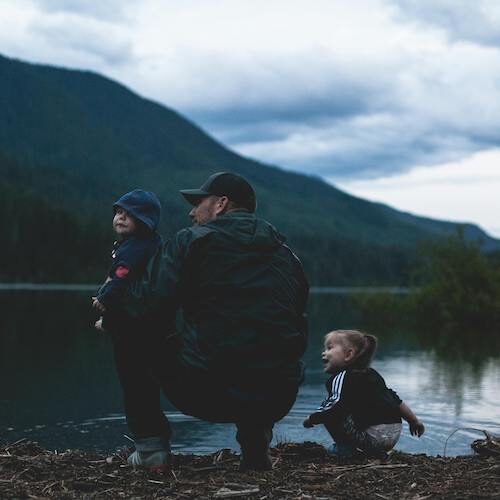The old me—pre-recovery—couldn’t even take care of a plant. Seriously. I’d try my hand at plant ownership (or be gifted one), and within days, that plant would be dead as a doorknob. I had a similar relationship with cars. I killed cars. “Forgot” to put oil in. “Forgot” the regular checkups. “Accidentally” backed into another car.
These weren’t isolated mistakes. They were symptoms of something deeper—my addiction, my disease.
I had a streak of irresponsibility and carelessness that made me the last person you’d pick to care for another human being.
So how the heck would I ever have a shot at being a decent father? The Answer: Recovery
Over the last 21 years of recovery from addiction, I’ve gradually—sometimes like a sloth—learned how to care: First for myself. Then for my things. And eventually, for the people around me. Including my children. That’s right—children. I now have two sons who look to me daily (scratch that: minute to minute) for care, for guidance, and for modeling. And now? I have the tools to show up for them.
How Did I Get Here?
I started with the basics:
- Make my bed every morning
- Do the dishes after each meal
- Pay my bills on time
- Show up to things I said I would—on time
Then, I started showing up for others:
- I became accountable to friends and family
- I kept my word
- I followed through
Slowly, my heart—which had become distant and shriveled—began to open. I found myself genuinely caring about the people around me. I started to feel empathy again. And then I met the woman of my dreams. We decided to have our first child together. I was terrified. But I also knew I wanted it. I wanted to be the best father I could possibly be. For me, fatherhood comes down to intention—and a daily process of self-reflection. Every night, I ask myself: Did I do my best today?
If the answer is yes—or even close—I give myself a little pat on the back. If not? I get curious: What can I do differently tomorrow It’s not about being perfect. Life isn’t perfect. Parenting definitely isn’t perfect. But it’s about having an open mind, a willing heart, and a learning spirit.
Remaining Calm: The Real Superpower
Kids don’t need you to be perfect. But they do need you to be grounded. They look to you to be a rock, not a tornado. If you’re always swaying, reactive, and unrooted—they feel it. Kids are highly sensitive. So sometimes? It’s about faking it until you make it. There are moments where I feel overwhelmed—angry, anxious, unsure. The old me would explode.
But now, I say to myself: “I’m feeling a lot right now. But I can’t afford to freak out. My kids don’t deserve to absorb my chaos. I can act contrary to what I’m feeling—I can stay grounded, even when I don’t feel grounded.” And when I do slip up? (Because I do…) That becomes a teachable moment too. I make an honest amends. I show them that when you mess up, you don’t have to hide or run from your mistakes.
There’s freedom in coming clean.


